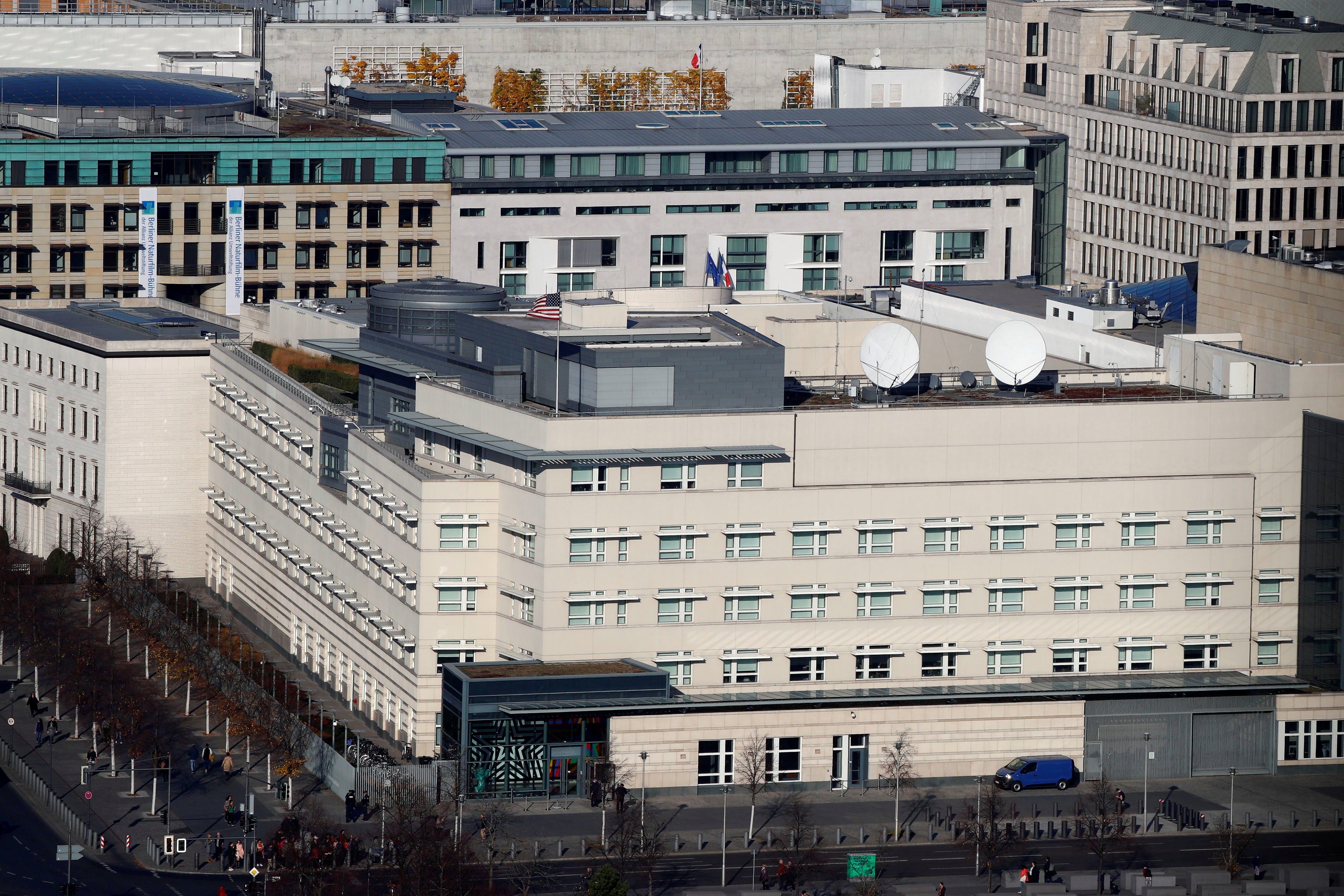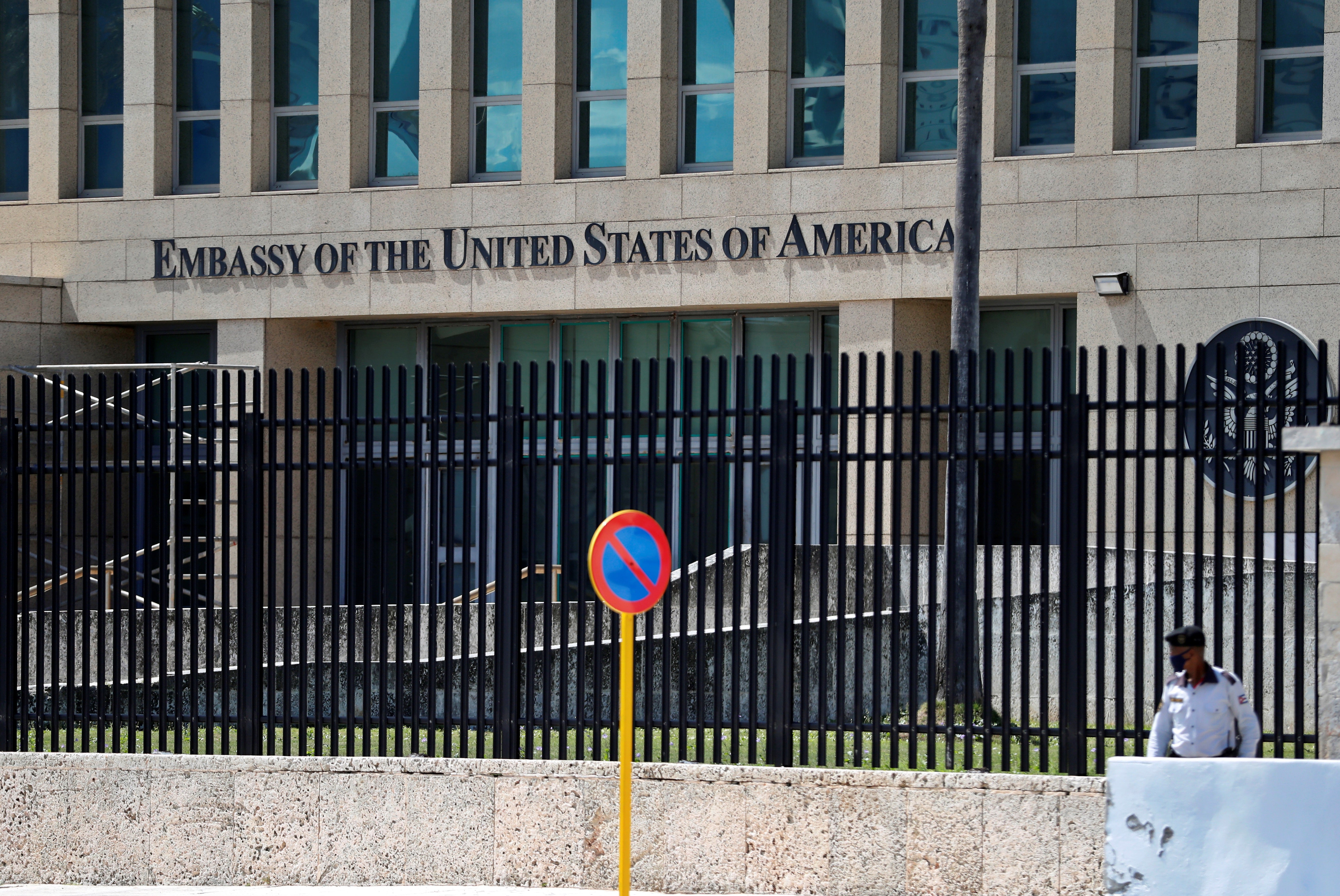Havana Syndrome: Berlin police probe new cases at US embassy in Germany
Police are treating the incident as an “alleged sonic weapon attack on employees of the US Embassy”

Your support helps us to tell the story
From reproductive rights to climate change to Big Tech, The Independent is on the ground when the story is developing. Whether it's investigating the financials of Elon Musk's pro-Trump PAC or producing our latest documentary, 'The A Word', which shines a light on the American women fighting for reproductive rights, we know how important it is to parse out the facts from the messaging.
At such a critical moment in US history, we need reporters on the ground. Your donation allows us to keep sending journalists to speak to both sides of the story.
The Independent is trusted by Americans across the entire political spectrum. And unlike many other quality news outlets, we choose not to lock Americans out of our reporting and analysis with paywalls. We believe quality journalism should be available to everyone, paid for by those who can afford it.
Your support makes all the difference.German police are currently probing a number of cases of so-called “Havana syndrome” at the US Embassy in Berlin, a mysterious set of symptoms believed to have affected 200 US diplomats, officials and family members worldwide.
Since August, police have been investigating the series of cases, calling it an “alleged sonic weapon attack on employees of the US Embassy” in response to a report by news magazine Der Spiegel.
Havana syndrome first came to public attention in 2016 after dozens of diplomats at the US Embassy in Havana, Cuba, complained of a similar ailment.

Symptoms include migraines, nausea, memory lapses and dizziness. A spokesperson for the US Embassy in Berlin declined to comment on any specific incident, but said an American investigation was ongoing into cases worldwide.
President Joe Biden has since signed a law that provides financial support to those government personnel suffering from the curious illness.
Another cluster of suspected cases was discovered earlier this year in Vienna. Austrian authorities continue to work with US diplomats in the city in as they try to uncover the root cause of the outbreak.
CIA director William Burns said in July that about 100 of the agency’s officers and their family members were among 200 or so US officials and their kin who had suffered from Havana syndrome.
Mr Burns noted that a US National Academy of Sciences panel in December found that the use of “directed energy” beams was a plausible cause.
He said there was a “very strong possibility” that the symptoms had been caused deliberately, and that Russia could be responsible. Moscow has denied involvement.
Join our commenting forum
Join thought-provoking conversations, follow other Independent readers and see their replies
Comments